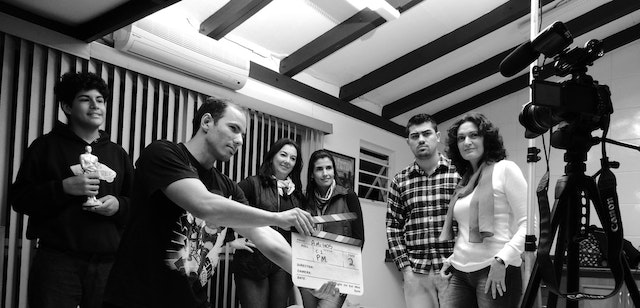Mastering the Casting Process: Insights for New Directors

Casting for a theatre production is one of the most important parts of the preparation process. Casting the right actors in the right roles is crucial to the ultimate success of the show. If you’re a new director, you may be a little unsure about the casting process and how to decide who should play what part. Here are some insights that can make casting easier and ensure your production is a success.
Keep an Open Mind
After reading the play and listening to the songs (if you’re doing a musical) you may have formed a vision in your mind for what each character should look and sound like. However, this can be limiting if your ideas are too set in stone. Keep an open mind and allow yourself to envision each auditionee in the role they are auditioning for, as well as other roles they may be better suited to play. Don’t allow yourself to be limited by gender, size, voice, or other outward characteristics beyond what is required for the role. It’s who the person is and how they can portray a certain character that matters.
Record Auditions with Audio and Video
It can be difficult to remember each audition after you see many auditionees in a single day. Record your auditions, with both video and audio to go back and review later. Some performers look and sound different on recordings, which may help influence your decision. You can also listen to auditions without looking at the video to help eliminate potential biases you may have due to the actor’s appearance.
Consider Chemistry Between Actors
Whether or not your production includes a romance, it is still important for the actors who are cast in specific roles to work well together. Even the best actors may have trouble acting like they are getting along when they are actually not. Conflicts between actors also can make rehearsals extremely difficult. Pay attention to the way auditionees act around each other, especially offstage, if you have the opportunity.
Fine-Tune Your Casting Choices with Callbacks
Once you have narrowed down your choices for specific roles, consider holding callback auditions where you ask certain actors to come and audition again for the same role or a different role. This gives you another opportunity to see how each actor may do in a certain role. Actors are often better suited for roles they did not originally audition for. You might also hold callbacks for a couple roles simultaneously so you can try different pairs of actors to judge stage chemistry.
Help Young Actors Feel at Ease
In educational theatre, you may have students who are auditioning for the first time. Confidence is something that is built up over time, so don’t assume a lack of confidence or signs of nervousness in an audition indicate that the auditionee is not fit for larger roles. Help young actors feel at ease by being kind and complimentary to build up their confidence. Consider having all of the auditionees participate in whole-group warm up acting exercises to ease nerves before beginning individual auditions.
Discuss Casting with Others
As the director, you are just one opinion regarding casting. It helps to have a team of people helping with the casting process to have an open discussion and get a variety of opinions. It may also help to ask any other theatre assistants or teachers who are/were privy to the backstage atmosphere during auditions.
Thoroughly Review the Script Ahead of Time
Be sure to read through the play multiple times before auditions to make sure you have a thorough understanding of the story and its underlying themes and messages. This will help you cast the right actors in the right roles. You want to be sure to select actors who can most accurately portray the characters so the audience is able to follow the story.
Consider Your Actors When Choosing a Play
If you happen to know some or all of the actors who will be in the performance, choose a play or musical that will work well for the talent you have available. Also make sure you consider the cast size when choosing a play so that it fits the number of actors you think you will have.
Pioneer Drama Service provides a wide variety of original plays and musicals specifically designed for educational theatre. Their productions are created with gender-flexible characters and a wide range of cast sizes. When you place a production order with Pioneer Drama Service and provide your dates and number of performances, their automatic licensing will immediately give you the legal rights necessary to perform. Recording and streaming rights are also available for every single one of their over 1200 plays and musicals.


